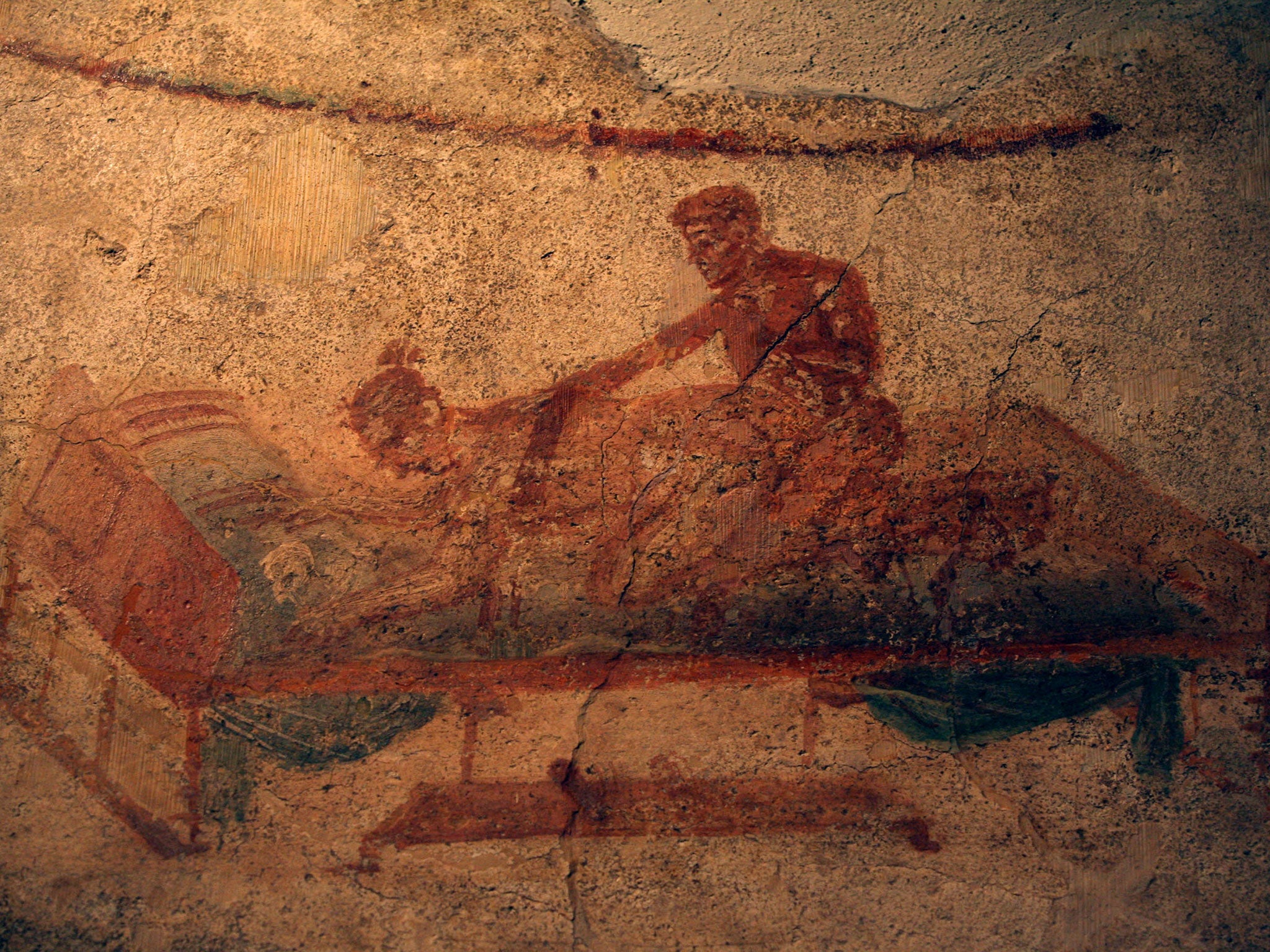Catullus' Bedspread: The Life of Rome's Most Erotic Poet by Daisy Dunn, book review: Tainted love in ancient Rome
This study of jilted poet Catullus provides a wonderful snapshot of the 1st century BC

Catullus is the most approachable of Roman poets and the most human. His lyrics teem like the streets of a red-light district with heartbroken lovers, drunken youths, old men pining for women a fraction of their age, money grabbing brothel keepers, prostitutes and slaves who know too much.
Rebelling against the dry tomes of people who tried to imitate Homer in chronicles of heroic iambics, Catullus wrote of the corporeal, impish and scatological. Even as late as 1989 there were debates as to whether Catullus' more risqué poems could be on the Latin A-level syllabus. One verse begins "You fellate me and I'll sodomise you" and does not become more restrained thereafter. This is poetry for the YouPorn generation.
Catullus wrote on themes of love against a backdrop of war, with his verse emerging at a time of political upheaval at the end of the Roman republic. This was a period of uneasy alliance between Julius Caesar, Pompey the Great and Crassus.
Gaius Valerius Catullus first put on his toga fringed with purple at the age of 16 and embarked on an adult life of sex and poetry, joining a fashionable literary circle in Rome.
He visited, probably as a matter of duty, his father's wealthy friend Metellus, and was smitten by his host's wife. She was older than him, with round, dark, shadowed eyes, described by contemporaries as "neither youthful nor particularly noteworthy in her physical stature".
Were his attentions nuisance or flattery? asks Daisy Dunn who presents Catullus as the most feminine of poets, yearning and pining in verse. He was influenced by the raw honesty of Sappho's poetry, of which we have only fragments, but Catullus knew well enough to translate; he codenamed his secret love Lesbia, from Sappho's island of Lesbos. He wished Lesbia would give him as many kisses as there are grains of sand on Cyrene, he wrote verses on her pet sparrow, on the warmth of his lover's face. As soon as his lyrics emerged in public he was taunted for his unmasculine stance in putting himself in thrall to a woman.
When Metellus became a consul he had less time for family life and Catullus had his opportunity to begin seeing Lesbia in a friend's house. When her husband was found suddenly dead in bed, the relationship changed. With Lesbia's new-found freedom came new boyfriends, and the shocking realisation to Catullus that what he had to offer counted for little with this rich woman, she was never going to marry him. He was in torments of love sickness "I hate and I love" he wrote, and his poems about her became harsher and more explicit.
Dunn does a brilliant job of recreating Rome in the first century BC as an everyday place with Cicero's incest jokes; Caesar fashioning a comb-over to conceal his baldness; Pompey's tendency to bite his lovers; ingenious methods of contraception and the affectation of aspirating h's among politicians who were trying to sound like the plebians whose support they desired.
This is a triumph of modern classical scholarship made accessible through lucid writing.
William Collins , £16.99. Order at £14.99 inc. p&p from the Independent Bookshop
Join our commenting forum
Join thought-provoking conversations, follow other Independent readers and see their replies
Comments
Bookmark popover
Removed from bookmarks